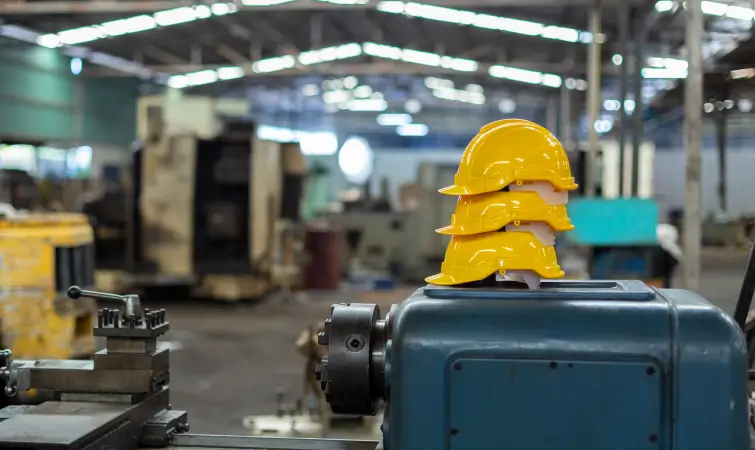In the realm of industrial processes, commerce, and supply chain management, the terms “production” and “manufacturing” are often used interchangeably, yet they entail distinct concepts and operations crucial for the smooth functioning of businesses. While both play pivotal roles in bringing goods to market, understanding their disparities is fundamental for optimizing efficiency and productivity within an organizational context. By having a clear understanding of the differences between the two helps enterprises in developing function-specific plans and strategies for business growth.
Production encompasses a broad spectrum of activities, including planning, coordination, and resource management, aimed at delivering goods or services efficiently. Conversely, manufacturing is more specialized, focusing on the physical transformation of raw materials into finished products through various processes. The difference between manufacturing and production is minimal, yet significant.
Aligning with other foundational industry sectors, manufacturing and production are both poised for a transformative journey driven by automation and digitalization, heralding a future of unprecedented efficiency and adaptability.
What are Market Stats:
According to Precedence Research Reports, the global smart manufacturing market valued at USD 226 Billion in 2022 and is projected to reach a substantial USD 985 Billion by 2032. These dynamic trends are indispensable in navigating a landscape riddled with complex challenges, including the need for swift turnarounds, navigating ever-shifting demands, and surmounting constraints within the supply chain. Amidst this backdrop, SAP manufacturing and SAP production solutions emerge as a steadfast ally, bolstering operations to enhance resilience and readiness for the challenges and opportunities that lie ahead.
With that in mind, the aim here is to delve into the difference between manufacturing and production, shedding light on their definitions, scope, objectives, integration, and focus areas, to provide a comprehensive understanding of these fundamental aspects of business operations. Furthermore, we endeavour to delve deeper into various SAP modules tailored for production and manufacturing, facilitating a more intelligent and streamlined approach to these core elements of industrial processes while helping businesses understand the core differences between manufacturing and production with more clarity.
Where the difference lies: Production vs Manufacturing
Let’s explore the intricate differences between these pillars of industry, shedding light on their unique paths, objectives, and integration strategies.
|
Basis |
Production |
Manufacturing |
|
Definition |
Orchestrates resources, technology, and personnel to deliver goods or services efficiently. |
Focuses on transforming raw materials into finished products through processes like machining, moulding, and assembly. |
|
Processes |
Involves planning, scheduling, quality control, inventory management, and logistics alongside manufacturing. |
Primarily concentrates on the physical transformation of materials into products. |
|
Objectives |
To optimize the entire supply chain, ensuring timely delivery and meeting customer demands effectively. |
To produce goods efficiently, maintain quality standards, and minimize costs. |
|
Integration |
Integrates manufacturing with procurement, distribution, and customer service for seamless operations. |
Operates within the broader framework of production processes, collaborating with various functions for cohesive workflow. |
|
Emphasis |
Emphasizes strategic planning, resource optimization, and achieving overarching business objectives. |
Prioritizes technical aspects such as equipment efficiency, process optimization, and quality control measures.
|
The difference between manufacturing and production is a thin line of the scope to which these processes cater. While manufacturing orchestrates the tangible transformation of raw materials, production conducts the harmonious coordination of resources, personnel, and processes to bring forth the final masterpiece.
Understanding SAP Modules for Manufacturing and Production
SAP, renowned as a premier provider of ERP software worldwide, has emerged as a cornerstone in the manufacturing industry. Within the realm of SAP manufacturing and production ERP modules, offerings are typically categorized into two main sections: functional and technical. Delving into the intricacies of these modules, here is a comprehensive suite of tools tailored to the manufacturing landscape.
1. Financial Management
As a trusted ERP solution, this SAP manufacturing module streamlines finance and accounting processes effortlessly. Tailored to accommodate businesses of all sizes and models, this module seamlessly records transactions, integrating financial data into a cohesive datasheet for streamlined operations. Manufacturers can efficiently manage accounting and auditing processes with ease.
2. Material Management
Raw material availability is paramount for manufacturing success. SAP manufacturing’s material management module simplifies ordering, handling, and purchasing raw materials, essential for both production and supply chain activities. Additionally, it optimizes storage capacity and facilitates invoicing for raw material transactions, ensuring smooth operations.
3. Human Resource Management
Employees are invaluable assets in any industry, including manufacturing. SAP manufacturing’s human resource management module enhances workforce dedication and productivity, enabling manufacturers to nurture talent effectively. By fostering employee engagement, this module drives project success and enhances operational efficiency, ultimately boosting profitability.
4. Quality Management
Maintaining product quality is a cornerstone of manufacturing success. SAP manufacturing’s quality management module empowers manufacturers to uphold stringent quality standards for both raw materials and finished products. By efficiently managing product storage and handling, this module ensures consistent product quality throughout the manufacturing process.
5. Sales and Distribution
Effective inventory and sales management are crucial for manufacturing success. SAP manufacturing’s sales and distribution module centralizes sales and order data, streamlining the distribution process. With comprehensive audit capabilities and insightful analysis tools, manufacturers can make informed decisions, track stock status, and optimize sales performance.
6. Production and Planning
SAP manufacturing’s production and planning module provides manufacturers with robust product planning and management capabilities. Leveraging real-time actionable insights and master data configuration, this module enables efficient management of sales, planning, distribution, operations, and material requirements, facilitating agile decision-making.
Ideally a SAP production module, it unlocks the synergy between market demand and production capacity to provide a dynamic platform for meticulous production planning. By generating schedules for production, procurement, and purchasing, PP ensures seamless availability of raw materials, essential for uninterrupted production cycles. This module meticulously records the production process, tracking planned and actual budgets to facilitate informed decision-making.
Facilitating the transformation of raw materials into semi-finished products, the SAP Production Planning module serves as a linchpin in the manufacturing supply chain. Tailored for production managers and scheduling experts tasked with optimizing production costs, it offers indispensable tools for orchestrating efficient manufacturing operations.
Within the SAP PP module, three primary components empower manufacturing excellence:
- Industry Transformation (SAP-PP-PI): Catering to the needs of process industries, this component streamlines production processes, enhancing operational efficiency and resource utilization.
- Discrete Manufacturing (SAP-PP): Designed for discrete manufacturing environments, this component facilitates precise planning and execution of production activities, ensuring adherence to quality standards and delivery schedules.
- Repetitive Manufacturing: Engineered for industries characterized by repetitive production processes, this component enables seamless coordination of repetitive manufacturing operations, driving productivity and cost efficiency.
The SAP Production Planning module serves as a strategic enabler for manufacturers, ultimately achieving operational excellence in today’s dynamic manufacturing landscape.
7. Controlling
SAP manufacturing’s controlling module empowers users to oversee and control various business operations effectively. By setting up and monitoring plans efficiently, manufacturers gain complete control over core processes. Real-time monitoring capabilities enable business owners to track progress and make informed decisions swiftly, driving operational excellence.
SAP’s suite of ERP modules empowers manufacturers with the tools and insights needed to excel in today’s competitive landscape. From financial management to production planning and quality control, SAP enables manufacturers to optimize processes, enhance productivity, and drive business growth.
Conclusion
Often used interchangeably, production and manufacturing encompass distinct yet interconnected aspects of the industrial landscape. The difference between manufacturing and production is critical to understand for entrepreneurs to navigate through the intricate set of processes they encompass. Awareness of the nuances between production and manufacturing helps enterprises to streamline resource allocation, optimize workflows, make informed strategic decisions, and tailor approaches according to specific business needs, whether it involves the creation of tangible goods or the provision of services. By providing integrated solutions for managing various aspects of production and manufacturing, SAP enables businesses to achieve greater coordination, transparency, and control over their operations.
SAP’s suite of modules tailored for manufacturing and production offers a comprehensive solution for streamlining operations, enhancing visibility, and driving innovation. From financial management to production planning and quality control, SAP manufacturing and SAP production modules empower organizations to meet evolving market demands, optimize resource utilization, and achieve operational excellence.
By leveraging SAP modules such as Production Planning (PP), Material Management, and Quality Management, manufacturers can effectively manage production processes, mitigate supply chain risks, and deliver superior products to customers. In today’s dynamic business environment, embracing SAP’s innovative solutions is paramount for staying competitive and driving sustainable growth in the manufacturing sector.

Want to improve both production and manufacturing efficiency?
Speak to our team of experts at Uneecops and discover the best solutions for your business.







